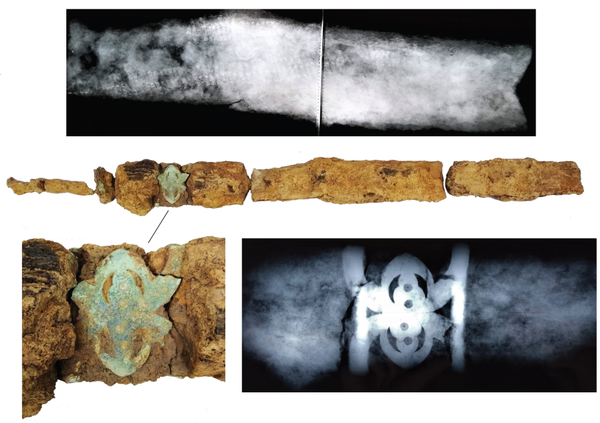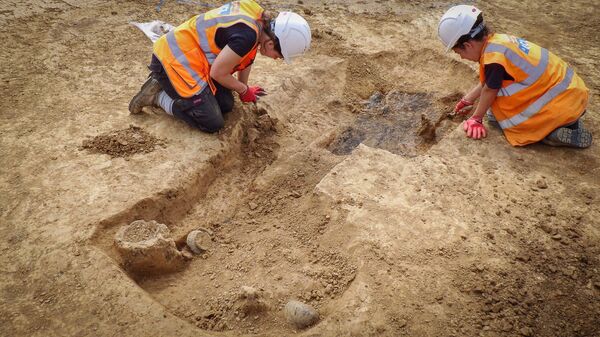The 2,000-year-old grave of a “warrior” surrounded by his weapons has been discovered by archaeologists in West Sussex in the UK, writes the Daily Mail.
Experts found an iron spear and a sword in a highly decorated scabbard in the grave, which dates back to the late Iron Age or early Roman period (first century BC to AD 50).
The team, from Archaeology South-East (ASE), the commercial branch of UCL's Institute of Archaeology, had been called in after builders working on 175 new homes on the outskirts of Walberton, near Chichester stumbled across the burial site.
ASE archaeologist Jim Stevenson, overseeing post-excavation investigations into the “incredibly rare” discovery, said:
“There has been much discussion generally as to who the people buried in the “warrior” tradition may have been in life. Were they really warriors, or just buried with the trappings of one? Although the soil conditions destroyed the skeleton, the items discovered within the grave suggest that the occupant had been an important individual.”
While the skeleton had been destroyed by time, evidence of a wooden coffin and four ceramic pots, placed outside this container, but still within the grave and possibly filled with food to assist the warrior’s passing into the afterlife, were also found.

The vessels were all made from local clays and most likely used for food preparation, cooking and storage.
Thus, x-rays and analysis of the sword and scabbard have revealed detailed copper-alloy decorations at the scabbard mouth, and in another exciting discovery, dotted lines on the x-ray could point to the occupant having been wearing some sort of studded garment when buried.
Evidence of clothing is a particularly rare find for archaeologists.
Another interesting detail is a dark stain that experts believe is evidence of a wooden container possibly used to lower the warrior into the grave.
Archaeologists have been able to create an exact 3D model of the grave, as they continue investigating this new discovery, hoping that emerging details might shed more light onto the social status and identity of the buried warrior, as well as life in that particular area at the time.


